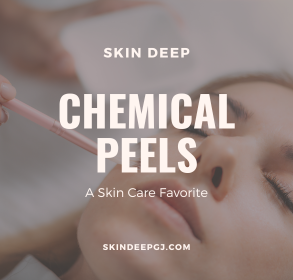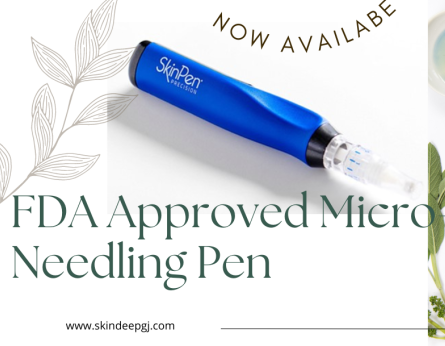Hydration VS Dehydration: What are the Differences?
Water content within the skin is a cornerstone of healthy function, resilience and appearance. In fact, without adequate hydration, the skin’s ability to heal, protect and perform its many roles is compromised, leading to concerns from acne and sensitivity to premature aging. This guide offers an in-depth look at dehydration’s impact on skin, the signs to watch for and trending ingredients to incorporate into treatments. With this knowledge, you can achieve hydrated, glowing skin year-round.
Differences Between Dry and Dehydrated Skin
Dry skin is characterized by a lack of oil (sebum) production. It tends to feel rough and tight and can appear flaky. In contrast, dehydrated skin results from a lack of water in the skin, which can affect any skin type, even oily. Dehydrated skin often feels tight and dull, making fine lines more noticeable. Addressing dry skin requires replenishing oils, while dehydrated skin needs water-based products to restore hydration.
Hydration vs. Moisture
Hydration refers to increasing the water content within the skin, using humectants like hyaluronic acid or glycerin to attract water. Moisture, conversely, involves sealing that hydration into the skin with emollients and occlusives like oils or butters, which create a barrier to prevent water loss. Both are essential for hydration and plump the skin from within, while moisture locks that hydration in, keeping the skin healthy and glowing.
Dehydration and Its Effect on Skin Conditions
Dehydration occurs when the skin lacks sufficient water content, affecting its barrier function and leading to various issues. This isn’t just a surface problem—hydration affects every layer of the skin. Below are three common conditions dehydration exacerbates or even causes:
- Acne
Dehydrated skin can stimulate excess oil production as it tries to compensate for the lack of moisture. This oil buildup, combined with dead skin cells, clogs follicles and creates an environment ripe for breakouts (hello, C. acnes). Dry, flaky skin can compound the issue by making it difficult for acne-fighting ingredients to penetrate, rendering treatments less effective. Pro Reminder: Don’t skimp on moisturizers for your acne; many are rich in probiotics and are water-based! Acne-prone skin still needs moisture, which includes using specific oils. - Sensitivity and Compromised Barriers
When the skin’s water content dips, its barrier function weakens, leaving it vulnerable to external irritants. Dehydrated skin may experience increased redness, itching, and a stinging sensation when using even mild products. This sensitivity makes building effective skin care routines challenging without further aggravating the skin. Pro Tip: Incorporate hydration-focused treatments that include barrier-repair ingredients like ceramides and hyaluronic acid to soothe and strengthen the skin. - Premature Aging
Fine lines and wrinkles are often more prominent in dehydrated skin. Without adequate moisture, the skin loses plumpness and elasticity, which accelerates the visible signs of aging. Collagen production can also slow, contributing to a tired or dull appearance. Pro Tip: Look for products that combine hydration with antioxidants to plump the skin and prevent free-radical damage.
Visible Signs of Dehydrated Skin
I can help you identify dehydration with a few key visual cues, including:
- A dull or lackluster complexion
- Fine lines that seem to disappear after applying moisturizer
- Tightness or a ‘pulling’ sensation in the skin
- Patchy dryness or flaky areas, especially around the nose or cheeks
- An increased tendency toward breakouts despite dryness
- An overall “crepey” look
A proper skin analysis can help distinguish dehydration from dry skin—a common confusion.
Must-Know Ingredients
The skin care industry offers a wealth of hydrating ingredients, some more buzzworthy than others. Below are some of the most effective, with a mix of staples and trending newcomers.
Hyaluronic Acid
This classic humectant attracts up to 1,000 times its weight in water, making it a go-to for hydration. Look for products with multiple molecular weights to target hydration across different layers of the skin.
Panthenol (Provitamin B5)
Known for its soothing and moisturizing properties, panthenol helps improve skin elasticity while calming irritation—perfect for dehydration and sensitivity.
Beta-Glucan
Derived from oats, beta-glucan offers intense hydration and enhances the skin’s ability to retain moisture. It also boasts antioxidant properties, making it ideal for aging skin.
Tremella Mushroom (Snow Mushroom)
A K-beauty staple, tremella mushroom rivals hyaluronic acid in its moisture-attracting properties but with smaller particles that penetrate even deeper into the skin.
Dipotassium Glycyrrhizate
Derived from licorice root, this natural anti-inflammatory ingredient calms the skin, helps even skin tone, and protects hyaluronic acid from degradation, ensuring longer-lasting hydration.
Treatment Strategies for Dehydration
Hydrating Facials. Incorporate masks with humectants and antioxidants for deep hydration and protection. Oxygen 3 in 1, and Hydro-Rejuvenation Facials: Boost circulation and hydration simultaneously, improving overall skin vitality.
LED Therapy. Red light therapy can improve moisture retention and calm irritated, dehydrated skin.
Enzyme Peels. Gentle exfoliation ensures hydrating ingredients penetrate effectively without disrupting the barrier. Smart Peels/Craft Facials are ideal to choose.
Home Care Recommendations
I will recommend a consistent home care routine focused on hydration to sustain results between appointments.
Gentle Cleanser. Opt for a low-foam or cream-based cleanser to prevent stripping the skin’s natural moisture.
Hydrating Toner. Mist or pat on a toner rich in humectants to prepare the skin for subsequent steps.
Serum with Hyaluronic Acid or Other Hydrator. Layer under moisturizer to boost hydration.
Barrier-Strengthening Moisturizer. Choose a product with ceramides or beta-glucan for long-lasting moisture.
SPF Protection. Hydrated skin is more resilient, but daily sunscreen ensures moisture isn’t depleted by UV exposure.
Building Client Awareness Around Hydration
A big part of my role as your esthetician is educating you about your skin. Many clients underestimate the role hydration plays in their skin’s overall health.
The Importance of Internal Hydration. While topical hydration is key, remember to drink plenty of water and consume hydrating foods.
Seasonal Adjustments: You will need more hydration during colder months when heaters dry out the air.
The Value of Layering: To optimize your routine, use multiple hydrating products, like serums and moisturizers.
Conclusion
With the right tools and knowledge, I can guide you to effectively unlock your skin’s full potential using various formulas. Hydration is not just a seasonal concern; it’s essential year-round for maintaining healthy, radiant skin. By understanding how dehydration impacts different skin conditions and staying updated on the latest ingredients, I can assist you more effectively and prepare you for lasting success. Whether through spa treatments or thoughtfully curated home care routines, a holistic approach to hydration will enhance your skincare experience.


